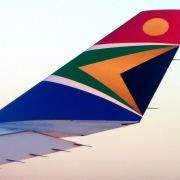US domestic airfare changes cause havoc
Several US-based airlines, including American, Delta and United, recently made changes to their domestic pricing structure, which resulted in massive airfare spikes for unsuspecting travellers.
“The simple way to explain what is happening is that certain multi-segment itineraries now cost a significantly higher amount when they are presented as a single ticket rather than multiple one-way tickets,” said ASTA President and CEO Zane Kerby.
The changes were made to what the airlines call “combinable fare rules,” which prohibit certain one-way fares from being combined into the same passenger name record. For example, if a traveler needs to fly from New York to Los Angeles one day, from Los Angeles to Phoenix the next, and from Phoenix back home to New York, the price to ticket that all at once can be more than double the price of purchasing three separate one-way tickets. For one ticket this itinerary on AA now costs roughly $1 800 (R27 323), whereas it only cost $450 (R6 831) for three separate tickets.
The simultaneous adoption of new pricing rules by all three carriers has led the Business Travel Coalition to accuse the airlines of illegally coordinating on this “complicated and comprehensive scheme.” The advocacy group asked the Department of Justice to add this to its ongoing investigation of possible airline collusion.
Also the GBTA expressed frustration at the change fare structure and the lack of advance communication. “In today’s travel ecosystem, active communication is necessary and vital. To that end, GBTA believes there should be full transparency with regard to any changes before and during the travel experience, including new supplier policies or travel process time and delays. Both business travellers and travel buyers should have access to clear information across the spectrum as to how prices are determined, how to deal with delays, cancellation policies and how to lodge complaints,” the association said in a statement.
Although the changes caused an outcry amongst business travellers, ASTA explained it once again highlighted the value of the travel agent. Said ASTA Chairman Roger Block: “The good news is travel agents immediately spotted what was happening, and figured out a way to work around it.”












